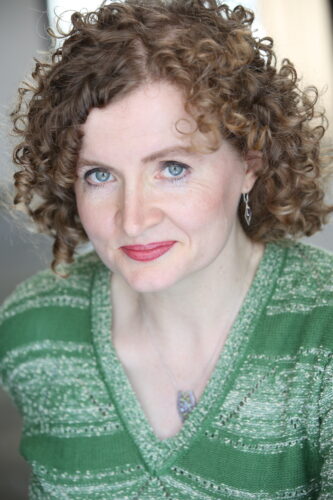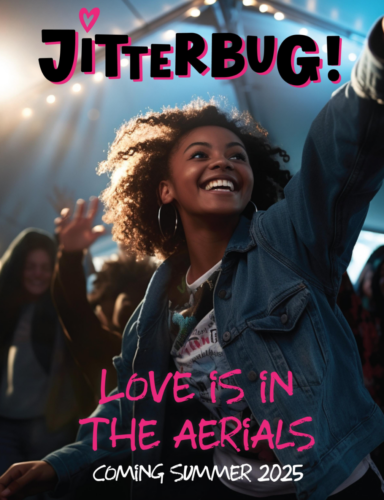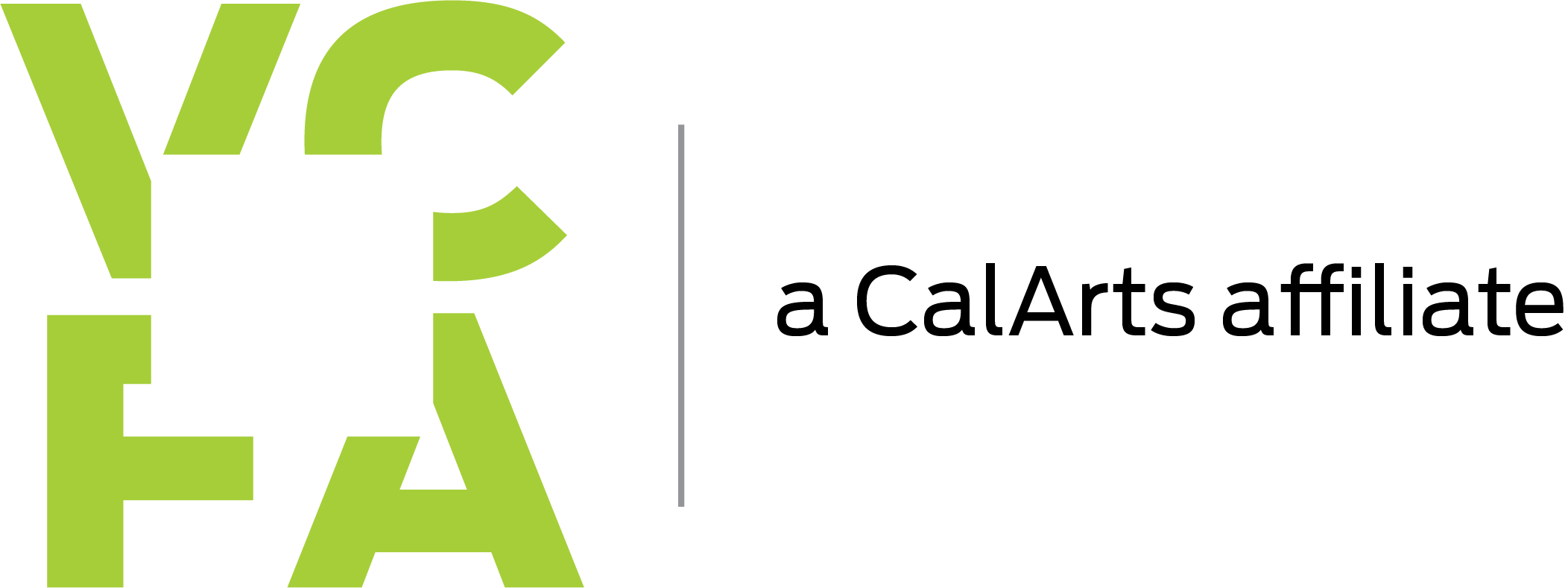ALUMNX STORY: Julie Berry, 2008 MFA in Writing for Children & Young Adults
 Meet Julie Berry (WCYA ‘08), New York Times bestselling author and VCFA MFA in Writing for Children & Young Adults alumnx. Berry is known for projects such as her Wishes and Wellingtons series (Sourcebooks) and novels such as The Passion of Dolssa (Penguin Young Readers Group) and All the Truth That’s in Me (Penguin Young Readers Group). Berry’s next book, If Looks Could Kill—a historical fiction novel with a Jack-the-Ripper and Medusa twist—is set to release with Simon & Schuster in 2025. For her creative work, Berry has been recognized with honors such as a Junior Library Guild Selection, an Odyssey Honor, and a Printz Honor, and has been nominated for a Carnegie Medal, the Los Angeles Book Prize, and more.
Meet Julie Berry (WCYA ‘08), New York Times bestselling author and VCFA MFA in Writing for Children & Young Adults alumnx. Berry is known for projects such as her Wishes and Wellingtons series (Sourcebooks) and novels such as The Passion of Dolssa (Penguin Young Readers Group) and All the Truth That’s in Me (Penguin Young Readers Group). Berry’s next book, If Looks Could Kill—a historical fiction novel with a Jack-the-Ripper and Medusa twist—is set to release with Simon & Schuster in 2025. For her creative work, Berry has been recognized with honors such as a Junior Library Guild Selection, an Odyssey Honor, and a Printz Honor, and has been nominated for a Carnegie Medal, the Los Angeles Book Prize, and more.
Beyond her work as an author, Julie Berry is the owner of the bookstore Author’s Note, and has recently started a new adventure as the Executive Producer of the upcoming movie JITTERBUG. Set to begin production in 2024, JITTERBUG is a Hollywood film focused on Lindy Hop swing dance, Hip-Hop dance, and Black jazz heritage.
Berry sat down with VCFA in the spring of 2024 to talk about the inspiration behind her work as an author, her new journey into producing, and the need for joyful stories such as JITTERBUG. Read our Q&A interview below.
The Interview
Q: How did you come to the world of writing and creating for children?
A: I always wanted to be a children’s author. There was never a time when I wanted something else. The goal and the dream always was to write for young people and I think that’s because when I was young, reading was the most transformative for me. That’s not to say that I don’t still love books. I do. But reading made me who I was as a child. Reading made me, and I love what those books I read as a kid gave me as a person. And I never stopped reading children’s books. I never outgrew it. So for me, it was always the plan.
Q: What creative wells and memories do you draw from today as a writer to inspire and drive your work?
A: I do think that nature and childhood really are the source for me. I was so fortunate to grow up in a world where we had land and gardens and creeks and ponds and animals and trees. I went outside all the time. I just went outside and looked around. And I’m the youngest of seven children. There’s a pretty big age gap between the oldest and the youngest… So I spent a lot of time alone, just puttering around and watching the flowers grow and watching for frogs and minnows in the creek. Watching the sky at night and in the morning and watching the seasons change in the colors of the trees and watching the weather.
[When writing] that’s a lot of what I think about, that place of curiosity and wonder—just being a part of something so much bigger and so much more glorious than myself. This is maybe what I still keep looking for. Because life takes you in very, very busy directions. From the time you leave home, you’re off to the races with college and career and family and keeping a roof over your head. And then if you add to that creative career, now you’re just busy all the time. And so maybe there’s something in that piece that I’m looking for.
Q: How do you approach the writing process, no matter whether you’re working on a novel or a picture book?
A: If I had to say where my strength is, it’s probably in revision. I find that very freeing, because I think we put a lot of pressure on ourselves to write well. I try to tell myself I don’t have to write well, I just have to revise patiently. And I think where revision is concerned, I’ve learned to get very, very good at trimming and cutting.
You just cut and cut and cut and whittle away everything that isn’t necessary. And I really do that patiently and creatively. We polish it down with shine. And, and you have to be willing to throw away huge amounts of prose, even stuff that you love. It’s a total cliche, but willingness to cut, that willingness to keep on starting over till it’s right as right as you can make it, I think, is the mark of someone who takes their art seriously. The reason I know that I’m a writer and not something else is that in most areas of my life, I’m content to be sloppy. Dinner… housekeeping… gardening… I tend to be kind of good enough in a lot of areas of my life, but not with my writing. I insist on taking the time.
Q: How did VCFA impact you as a writer?
A: I don’t believe I would be a published author today if it weren’t for what I learned at VCFA. My mentors and my peer examples taught me to dig deep, take big risks, write feverishly, and revise fiendishly. (Especially the revision part.) Above all, my time at VCFA taught me to be both humble in the face of the task of story-making, and bold in daring to believe in my own voice and in the value of what I wanted to say.
Q: Can you tell us more about JITTERBUG? As an author by trade, how did you enter the field of executive production?
A: I am really keen to talk about JITTERBUG the movie. I’m not a filmmaker by background… JITTERBUG is actually written by my husband. I’m the executive producer. He is the screenwriter, the producer, and he plays a small role in the film.
JITTERBUG is a coming of age story about a black teen girl who travels to Sweden with her parents to attend a Lindy Hop Swing Dance Camp. And, of course, we’ve got some summer romance. We’ve got a lot of dancing fun. We also have a lot of exploration of friendship and family relationships, and of the heritage and legacy of the black musicians and dancers who pioneered swing dance and Lindy Hop in the early 20th century. The main character draws meaning from that heritage and draws strength and growth from it.
Dance Camp. And, of course, we’ve got some summer romance. We’ve got a lot of dancing fun. We also have a lot of exploration of friendship and family relationships, and of the heritage and legacy of the black musicians and dancers who pioneered swing dance and Lindy Hop in the early 20th century. The main character draws meaning from that heritage and draws strength and growth from it.
So this combines a lot of things that I love. I love swing dancing. I love jazz music. So I did not write this, but I was very involved as a “script consultant.” It’s not official—like, that’s not going to be in the credits—but I was certainly involved in reading drafts and giving feedback. The story is as dear to my heart as if I wrote it, and I can’t wait to see it come to life.
We are shooting this summer in Herräng, Sweden, and we’ve got the director, producers, crew, and cinematographer. We are in callbacks now for our main character, we’ve got an offer out to an elite star for the lead role. My job as executive producer is to build up the executive production team and find the people that want to champion this project.
And there’s just so many things about it that are so joyful. I think, you know, everybody loves a good sort of summer love story. Everybody loves a great coming of age story. I’d compare JITTERBUG to CODA as a sort of really smart and thoughtful and fun film. There’s just something about a dance movie for young people, especially one that I think is really firming and uplifting. It’s not about mean girls on the dance floor, it’s not cutthroat competition, and they’re not trying to outdo one another. It doesn’t have that sort of competitive thrust. It’s just joyful and charming. And maybe it’s kind of LA LA LAND for swing dancers. So it’s gonna be a lot of fun.
Q: Why does it feel pertinent right now to focus on and champion joyful media?
A: To put out something that focuses on joy… we need all of the stories in the world. I’m not here to say that any one kind is better than any other kind. We need the heartbreak movies that require tissue boxes and we need the weird ones and we need the unsettling, jarring ones. I think we also need to be happy, and I think in particular, well, we have gone through some really rough times these last years. It’s been really hard, and it’s been especially hard on young people. I grieve for the young people who’ve had to come of age in the world that we’ve created these last 10 years. It was horrible to watch my children come of age in the climate of political, civil, military, and economic unrest, as well as a global pandemic.
I remember one day talking to my son, who was probably 14 at the time, maybe 15, so bright and so talented and such a wonderful kid, and I was talking to him about what he might want to do when he’s an adult. And he said, “What’s the point in planning? Is there even going to be a world?” I was so horrified by that question. I couldn’t just say “of course there will be….” So I feel we all deserve, but young people especially deserve, experiences that bring joy, not just to sort of placate their minds in the midst of turmoil, but to actually to heal and reorient us all in the midst of turmoil. Because this is our mess. And we can clean it and fix it. We have to start a place of believing that it’s a mess worth fixing, and that we together can care about each other enough to work together to fix it.
I think that’s part of why [JITTERBUG] is so important to me. Because when I go swing dancing, phones are put away, the politics are put away. The news is put away. The election is put away. All our differences are put away and we just dance with one another and everyone dances with everyone… Gender is not a thing in swing. Everybody dances with everybody… And that kind of unity and that kind of just joyful sharing of a fun activity together, I don’t know of anything else like it right now. And when my husband came home from the dance camp he attended in Sweden, which was the inspiration for the film, and he saw hundreds of teams dancing with each other, he just came home and said “This is what the world needs.” And at the time, I was kind of like, “Oh, okay, what happened over there?” But I can see what it means. We have almost forgotten, between our obsession with our phones and the sort of rancor that’s been our currency of late, how to have fun together and we’ve forgotten how to look each other in the eye. We don’t play games together like we used to. We don’t play sports together like we used to. And once upon a time, social dancing was what everybody did everywhere all night. In every community, every restaurant, square dancing, line dancing, swing dancing, ballroom dancing. Once upon a time, we all had this in our lives. And you know, it’s a movie. It’s not a global cause. But we hope we can give kids a movie that they’ll fall in love with and maybe some of them will run out and put their phones away and dance with each other.
Q: How do you hope JITTERBUG will impact and speak to its viewers?
A: We see that impact happening already. When we hired our director, Shayla Racquel, she called her mom and grandma to tell them about the project. When they heard it was about Lindy Hop swing dancing, their eyes bulged. “Did you know your great-grandma was a competitive swing dancer?” Shayla had no idea. Echoing that, when we cast our young star in the lead role of Izzy, it turned out that her grandmother had been a swing dancer also. We want young people to learn about the Black heritage and roots of contemporary dance styles, generally, but we especially love the idea of people finding their own personal family heritage of music and dance.
Q: What has it been like jumping into an industry and art so new to you?
A: As much as we want to continuously improve in our craft, I think it’s really helpful to try things that are very unfamiliar to us and frightening, frankly, because you can start to get a little complacent in doing what you know and have. You could start to get maybe a little too sure of yourself. I think it’s helpful to be kind of humbled and sent back to the drawing board and reminded that all of us in creating are working uphill in the dark, you know, and all of us need to approach our work with that same sort of curiosity and hopefulness and cluelessness and openness. Right when you know you don’t know what you’re doing, you have to be very radically open.
In all of our art, even art that we think we know something about, we need radical openness.
Q: What advice would you give to your peers looking to develop/engage in projects outside of their comfort zone/original artistic practice?
A: I would say the same thing I say to people curious about embarking on a writing journey:
- Be willing to be a beginner.
- Be willing to make a fool of yourself.
- Expect to make mistakes. Don’t be shocked or wounded by your fallibility.
- Be willing to put in the effort to listen and learn.
- Find mentors and ask frequently for help.
- Continuously evaluate the strength of your commitment. Your ability to get somewhere, wherever “somewhere” is for you, will be proportional to your commitment, and you’ll need that to fall back on when the journey becomes daunting, because it will.
- Don’t take yourself too seriously, and try to enjoy the process where you can.
Q: Do you have any final words for the VCFA community?
A: I would love to hear from the VCFA community. Any advice or insight, from casting inquiries to executive production, I would love to hear from people interested in being part of this or learning more about swing dancing, or who are able to teach me something about filmmaking. I am open for business and open for insight.
Learn more about and get in touch with Julie Berry at www.julieberrybooks.com and follow the JITTERBUG movie on their official Instagram.

